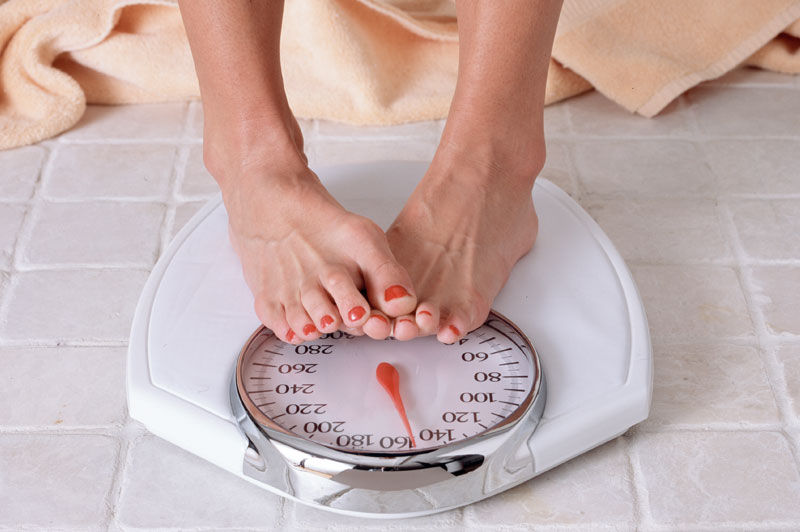If you’re looking for tips to lose weight, they’re not hard to find. There are countless books, magazines, and websites devoted to weight loss, each promising, “This is the one!” While their approaches may differ (paleo, raw food, vegan, Mediterranean, etc.), the common thread is that they address changes that should be made to your food choices to elicit the desired result.
Choose whichever “diet” you want. Chances are, it will work in the short term. But make sure to improve your chances of success by having a number of behavioral strategies in your toolbox. Addressing the behavioral, emotional and mental aspects of weight loss will make all the difference.
1. Know WHY you want to lose weight
What’s the source of your motivation? Do you want to lose weight for an upcoming family reunion or wedding? Short-term goals make losing weight much harder because of the added stress of time. This constant state of stress causes an increase in the stress hormone cortisol, which makes it harder to lose weight and can actually increase the number on the scale. Instead of losing weight for someone else, shift the focus to you. Do you want to lose the weight so your blood pressure comes down? Maybe you have a hard time climbing stairs and have knee pain from carrying around the extra weight. Figure out your WHY.

2. Break up with your scale
Repeat after us. “I am not a number.” Owning a scale is both a good and bad thing. It’s good because it provides you with feedback. Weighing in only once a week (at the most) lets you know when you’ve been losing weight and when your weight loss has stalled. More frequent weighing in (daily or even multiple times a day) is problematic because daily fluctuations in weight occur due to things like water retention and levels of glycogen stores. People get so wound up in the number on the scale that it dictates their mood for the day. Does this sound familiar? Down a pound? Yay! It’s going to be a great day! Up a pound? What’s the point of even trying? I’m just going to go eat some cookies. Ditch the scale and let your clothes be a better indicator of how you’re doing. After about two weeks of healthful eating, you should notice the waistband on your pants is a little looser. Now that’s progress!
3. Develop a positive attitude
Dieting and weight loss often go hand-in-hand with negative feelings and a fear of failure. When people are on a diet, they tend to talk about all of the foods they can’t have, and feelings of deprivation and starvation take up far too much mental energy. If this pattern sounds familiar, turn that frown upside down and start looking at the glass as half-full! Look at all of the nutritious and delicious food that you can have. Instead of saying, “I can’t eat that,” say, “I choose to eat this.” Develop an “I can do it!” attitude and watch how much easier everything becomes. Start with smaller, more easily achievable goals, like ordering fruit instead of fries, and work your way up to more ambitious goals. These smaller “wins” build up your confidence and motivate you to continue on your journey. Also, surround yourself with people who uplift and motivate you, which is crucial for the tough times.
4. Have patience
As much as you wish it could happen, it is impossible to lose 10 pounds overnight. Shows like The Biggest Loser and Extreme Makeover glamorize large losses on the scale. Unfortunately, these shows don’t tell you where that lost weight came from. When you lose weight, you lose a combination of fat, water and muscle. The goal is to preserve the muscle tissue through strength training and an increase in dietary protein so that the lost weight can come primarily from fat tissue. This can occur when weight loss is slow and steady. It’s like the story of the tortoise and the hare – slow and steady wins the race. Plus, slow weight loss is more likely to be maintained as permanent weight loss.

5. Have a plan
According to Benjamin Franklin, “If you fail to plan, you are planning to fail!” Right? Weight loss is a journey, much like a long road trip across the country. You need a plan for how you are going to get from start to finish. Each night, take a few minutes and plan out your meals and exercise for the next day. Prepping meals ahead of time and packing a cooler of food for the day ahead will prevent you from grabbing a cookie or hitting the vending machine when the 3 o’clock snack monster rears its ugly head. And like any journey, there will be some road hazards and detours along the way. Think about what has tripped you up in the past—dining out with friends, stress, sleepless nights—and come up with non-food alternatives to dealing with them. Journaling, listening to music, meditating, talking a walk and talking to a friend are just some of the non-food coping mechanisms that we suggest our clients try instead of defaulting to the bag of chips or pint of ice cream.
6. Write it down
One of the best tools for success is keeping a journal that documents your food, exercise, mood and hunger levels. There are many apps available that allow you to log your food and exercise, which is important because it provides you with instant feedback about how you’re doing and what changes you might need to make for the rest of the day or tomorrow. Including some information about your hunger level, as well as your emotional state, can provide clues about your eating patterns. Do you eat only when you are physically hungry or do you reach for food when you are feeling sad, lonely, stressed or bored? See our non-food coping mechanisms in Tip #6. Do you stop eating when you are full or stuffed, regardless of how much food is left on the plate? The Japanese have a saying called Hara Hachi Bu, which means that you eat only until you are 80 percent full. This type of practice organically understands that it takes 15 to 20 minutes for your brain to receive the signal from your stomach that you are full, and thus prevents overeating and that awful feeling of being stuffed. At your next meal, try checking in with yourself every few bites and assess your hunger level.
7. Don’t compare yourself to others
Weight loss is not a one-size-fits-all kind of thing. What works for one person might not work for you. Work with a Registered Dietitian or nutritionist who specializes in weight loss so you can come up with an individualized plan. Every journey is unique because each person is built differently. And give it time. Don’t be quick to change dietary or fitness habits because a specific one was working for someone else.

8. Do yoga and meditation
When you include yoga and meditation in your daily life, the awareness and concentration regions of the brain are activated, which is good for staying on track for weight loss. Additionally, these activities reduce stress and increase happiness levels, which is important when facing comfort eating or a binge. When your mind is at peace, it’s easier to make the right choices.




 by
by 







 by
by